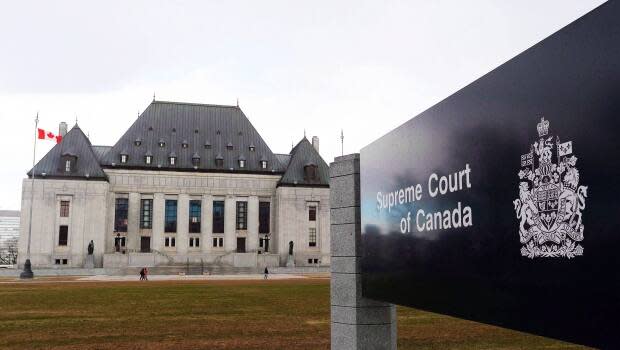Supreme Court of Canada agrees to hear appeal of Calgary murder case

The Supreme Court of Canada will provide clarity on the legal issue of when statements to police are considered voluntary, with its decision Thursday to hear the case of a Calgary man currently awaiting a second trial in the 2007 killing of his friend.
In 2018, Russell Tessier was convicted by a jury of the first-degree murder of his friend Allan Gerald Berdahl, 36, whose body was found in a ditch near Carstairs, Alta., on March 16, 2007.
Last August, the Alberta Court of Appeal overturned Russell Tessier's first-degree murder conviction and ordered a new trial after finding the trial judge erred in allowing into evidence a statement made by the accused to RCMP.
The Crown appealed and, on Thursday, Canada's top court agreed to hear the case.
Tessier's second trial was supposed to take place this May but will likely be delayed at least until the Supreme Court makes its decision, which is months away. A date for arguments has not yet been set.
'An interrogatory interview'
Tessier was initially interviewed by police two days after his friend was found fatally shot.
At that time, investigators said they did not believe Tessier was a suspect but after asking some background questions about the victim, the questions became more pointed and seemed to suggest Tessier had been involved in the murder.
"It was clearly an interrogatory interview well before there was any caution," said Pawel Milczarek, Tessier's lawyer.
Because they did not consider him a suspect, he was not advised of his right to a lawyer, to stay silent or that his comments to police could be used against him.
"Leave applications are only granted where the court determines there is an issue of public importance to be decided," said Milczarek.
"We look forward to presenting arguments that defend the decision of the Alberta Court of Appeal as the law that should apply nationally."
DNA on cigarette butt
Berdahl was found in a ditch near Carstairs.
There were tire tracks, footprints, blood spatter and two cigarette butts near his body.
It wasn't until DNA from one of the cigarette butts came back matching Tessier that he was charged in Berdahl's killing, eight years later, in 2015.
His trial got underway in 2018 with jurors hearing Tessier and Berdahl argued over a vehicle they shared. Tessier was the last person to see his friend alive.
The day after Berdahl's body was discovered, RCMP interviewed Tessier so they could learn more about the victim from his friend and business associate.
Officer suggests Tessier involved in killing
After asking about the victim's background, the RCMP suggested to Tessier that he'd been involved in the murder.
Eventually, the interview ended and Tessier went home. He did not confess to shooting Berdahl.
But the next day, he contacted RCMP to tell them that Berdahl had been staying with him and that he had stored a gun in the bedroom used by his friend. Police escorted Tessier home, where they discovered the weapon was missing.
In Tessier's police interview, he told the officer he'd last seen his friend around 8 p.m. the night before the body was discovered.
But surveillance video presented as evidence in the trial showed the pair inside a convenience store, at 12:32 a.m. — just eight hours before Berdahl's body was discovered with five gunshot wounds in the head.
In overturning Tessier's conviction and ordering a new trial, the Appeal Court wrote that the question before the trial judge was "not whether the police needed to administer a caution. It was whether Mr. Tessier spoke to police voluntarily."
"A new trial is required to consider whether, in the absence of a caution, Mr. Tessier made a meaningful choice to speak to the police, as that concept is properly understood," wrote the panel of judges.

